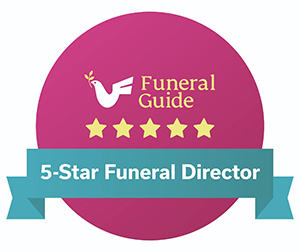On Embalming and Viewing an Unembalmed Body
It’s infamously associated with the Egyptian Pharaohs. But embalming has come a long way since it’s rudimental beginnings and is now a common procedure across the world. It allows loved ones the time to visit the deceased before the funeral as it retards some of the natural changes that happen once death has taken place.
Dressing the body and embalming is something we offer as part of our comprehensive service.
Death can change the appearance of the body. Embalming can restore the appearance of a loved one and help a family say goodbye.
Some religions don’t allow embalming, but generally embalming is a personal choice. It typically takes place so family and friends can visit their loved one in the Chapel of Rest until the time of the funeral.
In some circumstances where the death was unexpected or traumatic, embalming can help families get closure by allowing the deceased to be viewed and injuries to be hidden.
The National Association of Funeral Directors code of conduct states that bereaved families should be informed before embalming goes ahead and the process explained if the family wants more information.
Is Viewing an Unembalmed Body Possible?
There’s no law in the UK that says a body must be embalmed and as mentioned before it is a personal choice (although we do recommend embalming, particularly if there is a delay before the funeral takes place).
The exception is when a body is being transported abroad, this is called repatriation. In this case the body must be embalmed, and a certificate of embalming would be required as part of the repatriation documents.
And as already mentioned some religions, notably Jewish and Muslim, don’t allow for embalming and as the funerals for these religions generally take place within 24 hrs, it is not necessary.
Where a family has chosen to not embalm, any visits to see the deceased would usually take place within a few days. In this case the body is kept in a temperature-controlled environment to slow down the natural changes that happen after death takes place.
There are circumstances where embalming may not be desirable. For example:
- Green funerals – some natural burial grounds may not allow people who have been embalmed to be buried. This is to prevent embalming fluid leaching into the soil and damaging the environment, however formaldehyde is a naturally occurring element and is present in the soil naturally.
- If a person has died from a notable infectious disease. In some instances, for reasons of public health embalming is discouraged, however such instances are extremely rare and with careful consideration and good practice most notifiable diseases can be overcome.
What Happens to a Body That’s Been Embalmed?
Embalming temporarily delays the first stages of a body’s decomposition.
As soon as a person dies their body begins to break down, this is natural and can happen at different rates dependent on many factors and circumstances.
The embalming process helps delay this process, allowing the family to visit until the time of the funeral (in the right conditions an embalmed body will never decompose, however this type of embalming is rarely practiced).
Skilled embalmers can help restore the deceased’s appearance allowing the family a little more time to say goodbye in comfort.
Embalmers are highly skilled and should be members of the British Institute of Embalmers. They use the body’s own circulatory system to introduce a carefully formulated mixture of chemicals to help preserve the body and act as an ‘internal cosmetic’ restoring the life-like appearance.
A typical embalming fluid usually includes a weak solution of formaldehyde as well as other specialised fluids to break down blood clots and aid circulation. Rehydrating fluids are also used to restore dehydrated tissues. There will also be water and some colourants to help restore the natural appearance of the skin. The amount of fluid used depends on the height and weight of the person, the circumstances in which they died and any delay that may occur until the funeral takes place.
What Happens if I Don’t Choose Embalming?
If you choose against embalming the funeral director will prepare your loved one’s body with care and dignity but there are circumstances where they may have to advise against visiting your loved one.
The deceased’s hair and clothing will be handled by the funeral director’s staff. The aim is to make the deceased look as close to their appearance in life as possible, but this can be difficult if some of the natural changes that happen after death are advanced.
The funeral director will consult you during this process, to ensure your wishes are carried out.
Can I still Be Cremated?
You can still be cremated and buried if you’ve been embalmed. The embalming process will not have any effect on the ashes, and these can be looked after in the same way as if embalming had not taken place.
According to a BBC News report around 55% of bodies in the UK do have some form of embalming.
“The funeral industry estimates between 50% and 55% of deceased in the UK undergo some form of embalming so they can be viewed by relatives. The practice has become more prevalent in recent years because of the growing length of time between death and funeral, caused by delays in obtaining paperwork.”
Stibbards & Sons
We’re a family run business and have been arranging funerals for five generations. We know that dealing with a death in any circumstances is hard, but we are here to help advise you and take as much stress out as we can. Whatever you choose, we’ll carry out your wishes with professionalism and sensitivity.
We can help with bereavement support. Our professional team can help you come to terms with your loss in a safe and comfortable environment. It’s completely confidential.
If you have a general query you can use our contact form and we’ll get back to you as quickly as possible.
You might also like to read our full guide on what to do in the first days of a loved one passing away.







